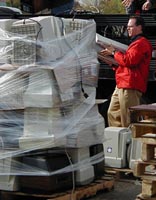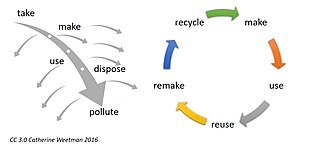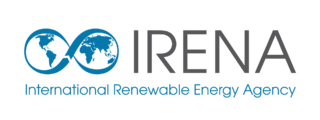 | |
| Founded | 2018 |
|---|---|
| Type | A partnership with an independent Board of Directors, hosted by the World Resources Institute (a 501(c)(3) nonprofit organization) and previously incubated by the World Economic Forum |
| Focus | Circular economy, electronics (e-waste), plastics, food and bio-economy, business models and markets, public-private partnerships |
| Location | |
Area served | Worldwide |
| Method | A public-private collaboration platform and project accelerator |
Key people | Frans van Houten (co-chair of PACE; CEO, Philips), Naoko Ishii (co-chair of PACE; CEO, Global Environment Facility), DameContentsEllen MacArthur (board member; Founder, Ellen MacArthur Foundation) |
| Website | acceleratecirculareconomy |
In 2018, the World Economic Forum, World Resources Institute, Philips, Ellen MacArthur Foundation, United Nations Environment Programme, and over 40 other partners launched the Platform for Accelerating the Circular Economy (PACE; also referred to as the PACE Action Hub). [1] PACE advocates for a circular economy: "one that exchanges the typical cycle of make-use-dispose of in favour of redesign, reuse and recycling. According to the International Resource Panel, globally, nearly 90 billion tonnes of materials were consumed last year. This is predicted to double by 2050. Only 9% is cycled back into the economy, wasting an estimated $4.5 trillion in “recoverable” resources." [2]

The World Economic Forum (WEF), based in Cologny-Geneva, Switzerland, was founded in 1971 as a not-for-profit organization. It was granted "other international body" status in January 2015 by the Swiss Federal Government under the Swiss Host-State Act. The WEF's mission is cited as "committed to improving the state of the world by engaging business, political, academic, and other leaders of society to shape global, regional, and industry agendas".

The World Resources Institute (WRI) is a global research non-profit organization that was established in 1982 with funding from the MacArthur Foundation under the leadership of James Gustave Speth.

Koninklijke Philips N.V. is a Dutch multinational technology company headquartered in Amsterdam, one of the largest electronics companies in the world, currently focused in the area of healthcare and lighting. It was founded in Eindhoven in 1891 by Gerard Philips and his father Frederik, with their first products being light bulbs. It was once one of the largest electronic conglomerates in the world and currently employs around 74,000 people across 100 countries. The company gained its royal honorary title in 1998 and dropped the "Electronics" in its name in 2013.
PACE's original intent has three focal areas: (1) developing models of blended finance for circular economy projects, especially in developing and emerging economies; (2) creating policy frameworks to address specific barriers to advancing the circular economy; and (3) promoting Public–private partnership for these purposes. [3] [4]
Blended finance is defined "as the strategic use of development finance and philanthropic funds to mobilize private capital flows to emerging and frontier markets", resulting in positive results for both investors and communities. Blended finance offers the possibility to scale up commercial financing for developing countries and to channel such financing toward investments with development impact. As such, blended finance is designed to support progress towards the Sustainable Development Goals (SDGs) set forth by the United Nations. Meeting the SDGs will require an additional $2.5 trillion in private and public financing per year as of 2017 estimates, and an additional $13.5 trillion to implement the COP21 Paris climate accord. The concept of blended finance can contribute to raising the private financing needed. It was first recognized as a solution to the funding gap in the outcome document of the Third International Conference on Financing for Development in July 2015.

A public–private partnership is a cooperative arrangement between two or more public and private sectors, typically of a long-term nature. Governments have used such a mix of public and private endeavors throughout history. However, the late 20th century and early 21st century have seen a clear trend towards governments across the globe making greater use of various PPP arrangements.








